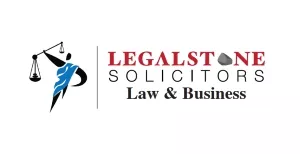- within Corporate/Commercial Law topic(s)
- with Senior Company Executives, HR and Finance and Tax Executives
- in Asia
- with readers working within the Banking & Credit, Healthcare and Technology industries
- within Corporate/Commercial Law topic(s)
- in Asia
- in Asia
- in Asia
- in Asia
- in Asia
- with readers working within the Media & Information industries
- within Corporate/Commercial Law and Family and Matrimonial topic(s)
The Gold Board Act of 2025 (Act 1140) has been enacted to regulate gold trading and marketing in Ghana. The newly established government body, known as the Ghana Gold Board or GoldBod, has been granted exclusive authority to buy, sell, weigh, grade, assay, value, and export gold and other precious minerals in the country. GoldBod was created specifically to oversee gold trading and exports from artisanal and small-scale mining (ASM) operations.
According to Section 3(2) of Act 1140, GoldBod has the sole mandate to:
- Grade, assay, weigh, and value gold produced in, brought into, or exported from Ghana;
- Purchase and sell gold produced by miners, excluding large-scale mining operations; and
- Export gold produced by mining companies that are not classified as large-scale mining entities.
As a result, the Gold Board Act replaces and or repeals previous regulatory regimes that allowed legal entities, including those with foreign-held shares, to engage in the trading and marketing of precious metals in Ghana, including gold dore bars.
i. Trading without License
The gold trading and marketing industry in Ghana is highly regulated. Therefore, any individual who attempts to trade in gold without a license from the Gold Board commits an offense under the law. Section 26(5) of the Act defines the offense related to trading without a license. It states: "a person who engages in a business or other related activity under this section or regulations made under the Act without a license commits an offence and is liable on summary conviction to a fine of not less than fifty thousand penalty units and not more than two hundred thousand penalty units or a term of imprisonment of not less than five years and not more than ten years or both."
ii. Bar of Foreign Interest Participation in Gold Trading.
Section 28 of Act 1140 outlines the qualifications necessary to obtain a license from GoldBod. According to this section, an individual is eligible to apply for a license if they meet the following criteria:
a. A citizen of eighteen years or above; or
b. A company, a partnership, an association or other body, whether incorporated or unincorporated, which is wholly owned by a citizen.
Effectively, foreign interest participation companies and foreigners in general are barred from procuring licensing to engage in an activity in Ghana's gold trading and marketing regime. The entire scope is reserved for Ghanaians and Ghanaian-incorporated entities only. No foreigner shall have the right to participate in the industry through a corporate shareholding company, either on their own or in association with other foreigners.
iii. Foreign Interest Participation Through Off-taker and Joint Venture Arrangements
That notwithstanding, foreign investors must be aware of this new regulation surrounding gold trading and marketing in Ghana. They, however, have a chance to become off-takers or form joint ventures with licensed entities. The rationale for this consideration by GoldBod is to streamline the process, increase transparency, ensure compliance, and attract more investments.
What Investors Must Know
- Sole Authority
Investors must know and understand that GoldBod is the only body authorised to oversee, license, and manage the export of ASM gold in Ghana.
- Regulatory Changes
Foreign individuals or entities can no longer directly purchase and export ASM gold. They are to comply with one of the following if they want to engage in gold and precious minerals activities.
- Approved Off-Taker: Foreign investors can purchase gold through GoldBod's centralized export platform after being approved as an off-taker.
- Joint Ventures: Foreign investors can partner with a licensed aggregator or company.
- Compliance is Key
To operate legally, foreign investors must receive the blessings of the GoldBod and adhere to all the regulations. Operating without a license is a criminal offence and is liable on summary conviction to a fine of not less than fifty thousand penalty units and not more than two hundred thousand penalty units or to a term of imprisonment of not less than five years and not more than ten years or both.
- Assaying and Quality Control
All gold will be officially assayed and sealed before export, ensuring quality and building investor confidence.
- Standardized Processes and Traceability
GoldBod aims to standardize licensing, assaying, and export processes to reduce delays and increase transparency. Additionally, gold exported through GoldBod will be traceable and comply with international ESG and AML standards, which enhances credibility.
- Regulated Market
The gold export and marketing industry under GoldBod is expected to reduce gold smuggling and create a safer environment for investors.
Non-Compliance with GoldBod Regulations
Engaging in gold export and marketing trade in Ghana without a license from GoldBod can result in;
- Seizure of goods
- Substantial fines and imprisonment
- Potential loss of investment capital
- Breaches of International Supply Contracts
Conclusion
GoldBod aims to formalise the gold export and marketing industry to enhance transparency and increase revenue for the Republic of Ghana. Investors must comply with this new licensing regime to avoid severe penalties.
It is crucial for foreign investors to obtain expert legal advice to navigate the complex legal and regulatory requirements involved in the incorporation process in Ghana. Legalstone Solicitors PRUC has extensive knowledge and experience to assist foreign investors in establishing a company and engaging in this regulatory sector in Ghana.
The content of this article is intended to provide a general guide to the subject matter. Specialist advice should be sought about your specific circumstances.


